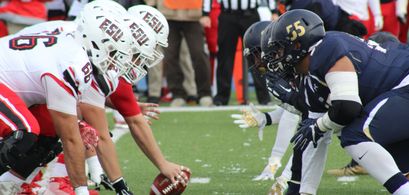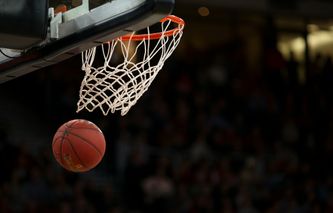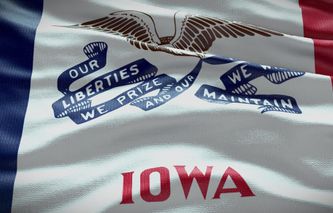NBA Teams
Philadelphia WarriorsLos Angeles LakersBaltimore BulletsHouston RocketsWaterloo HawksWashington WizardsWashington CapitolsVancouver GrizzliesUtah JazzTri-cities BlackhawksOklahoma City ThunderNBA Denver NuggetsToronto RaptorsToronto HuskiesSyracuse NationalsSt. Louis HawksSt. Louis BombersSheboygan Red SkinsSeattle SupersonicsSan Diego RocketsSan Diego ClippersNBA San Antonio SpursSacramento KingsNBA Providence SteamrollersPortland Trail BlazersPittsburgh IronmenPhoenix SunsPhiladelphia 76ersOrlando MagicNew York KnicksNew Orleans PelicansNew Orleans JazzNew Jersey NetsMinnesota TimberwolvesMinneapolis LakersMilwaukee HawksMilwaukee BucksMiami HeatRochester RoyalsNBA Defunct Team HistoriesMemphis GrizzliesLos Angeles ClippersKansas City KingsIndianapolis OlympiansIndianapolis JetsNBA Indiana PacersGolden State WarriorsFort Wayne PistonsDetroit PistonsDetroit FalconsDallas MavericksCleveland RebelsCleveland CavaliersCincinnati RoyalsChicago ZephyrsChicago StagsChicago BullsCharlotte HornetsBuffalo BravesBrooklyn NetsBoston CelticsAnderson PackersAtlanta Hawks
NFL Teams
Tampa Bay BuccaneersNFC Team HistoriesTennessee TitansProvidence Steam RollerNFL Washington SenatorsWashington Football TeamTonawanda KardexToledo MaroonsSyracuse ProsStaten Island StapletonsSt. Louis RamsSt. Louis GunnersNFL St. Louis CardinalsSeattle SeahawksSt. Louis All-StarsSan Francisco 49ersRock Island IndependentsRochester JeffersonsNew York JetsSan Diego ChargersPottsville MaroonsPortsmouth SpartansPittsburgh SteelersPhiladelphia EaglesOakland RaidersNFL New York YankeesNFL New York Giants New Orleans SaintsNew England PatriotsMinnesota VikingsMiami DolphinsLos Angeles RamsNFL Los Angeles ChargersL.A. BuccaneersOorang IndiansNY Brickley GiantsNewark TornadoesNew York BulldogsMinneapolis MarinesMilwaukee BadgersMiami SeahawksLouisville BrecksLos Angeles DonsColumbus PanhandlesNFL Cleveland IndiansLas Vegas RaidersNFL Kansas City CowboysDallas TexansDetroit LionsJacksonville JaguarsCleveland RamsCleveland Browns Boston Yanks Boston Bulldogs Baltimore RavensArizona CardinalsKansas City ChiefsKenosha MaroonsIndianapolis ColtsHouston TexansHouston OilersHartford BluesHammond Pros Green Bay Packers NFL Detroit Wolverines Frankford Yellow JacketsEvansville Crimson GiantsDuluth EskimosDetroit PanthersDetroit Heralds & Detroit TigersDenver BroncosDayton TrianglesDallas CowboysNFL Cincinnati RedsCincinnati CeltsCincinnati BengalsChicago Tigers Chicago Hornets/Rockets Chicago CardinalsChicago Bears Washington RedskinsPhoenix CardinalsNew York YanksMuncie FlyersLos Angeles RaidersCarolina Panthers Canton BulldogsBuffalo Bisons Buffalo Bills Brooklyn Lions NFL Brooklyn Dodgers Boston Redskins Baltimore ColtsCleveland BulldogsAtlanta Falcons Akron Pros Orange Tornadoes
AFC Teams
NFC Team
NHL Teams
NHL TeamsNHL Winnipeg JetsWashington CapitalsVancouver CanucksToronto Maple LeafsToronto Blue ShirtsTampa Bay LightningSt. Louis EaglesSt. Louis BluesSan Jose SharksVegas Golden KnightsNHL Quebec NordiquesQuebec BulldogsNHL Pittsburgh PiratesPittsburgh PenguinsPhiladelphia QuakersPhiladelphia FlyersOttawa SenatorsNew York RangersNew York IslandersNew York AmericansNew Jersey DevilsNashville PredatorsMontreal WanderersMontreal MaroonsMontreal CanadiensMinnesota WildMinnesota North StarsLos Angeles KingsKansas City ScoutsHartford WhalersHamilton TigersFlorida PanthersNHL Edmonton OilersDetroit Red WingsDallas StarsColumbus Blue JacketsNNL Colorado RockiesColorado AvalancheCleveland BaronsChicago BlackhawksCarolina HurricanesCalifornia Golden SealsCalgary FlamesBuffalo SabresBoston BruinsAtlanta ThrashersAtlanta FlamesArizona CoyotesRacine LegionAnaheim Ducks
MLB Teams
Los Angeles DodgersAL Milkwaukee BrewersNEW YORK HIGHLANDERSMilwaukee GraysNL Milwaukee BrewersMilwaukee BravesMiami MarlinsLouisville GraysLouisville ColonelsNL St. Louis CardinalsNL Kansas City CowboysNL Indianapolis HoosiersIndianapolis BluesHouston AstrosTroy Trojans Hartford Dark BluesNL Detroit WolverinesNL Colorado RockiesCleveland SpidersNL Syracuse StarsCleveland BluesNL Cincinnati RedsChicago CubsSt. Louis MaroonsNL Buffalo BisonsBrooklyn HartfordsSan Francisco GiantsSan Diego PadresNL Pittsburgh PiratesPhiladelphia Phillies St. Louis Brown StockingsNew York Mets Montreal ExposProvidence GraysNew York Mutuals NL Boston BravesAtlanta BravesArizona DiamondbacksNL Washington SenatorsNL Washington NationalsOakland AthleticsMLB Baltimore OriolesAL Washington SenatorsTexas RangersTampa Bay RaysAL St. Louis BrownsSeattle PilotsAL Philadelphia AthleticsMinnesota TwinsLos Angeles AngelsKansas City RoyalsKansas City AthleticsAL Detroit TigersToronto Blue JaysCleveland GuardiansMLB Boston Braves
MLS Teams
LAFCMLS Team HistoriesMLS Defunct TeamsChivas USAReal Salt LakeSan Jose EarthquakesSeattle Sounders FCSeattle MarinersPortland TimbersPhiladelphia UnionOrlando City SCNew York City FCNew England RevolutionMontreal ImpactMinnesota United FCInter Miami CFNashville SCFC CincinnatiMiami FusionSporting Kansas CityLA GalaxyHouston DynamoFC DallasD.C. UnitedColumbus Crew SCColorado RapidsVancouver Whitecaps FCToronto F.C.Atlanta United F.C.Tampa Bay MutinyRed Bull New YorkChicago Fire FC
National League Teams
Los Angeles DodgersWorcester Ruby LegsMilwaukee GraysNL Milwaukee BrewersMilwaukee BravesMiami MarlinsLouisville GraysLouisville ColonelsNL St. Louis CardinalsNL Kansas City CowboysNL Indianapolis HoosiersIndianapolis BluesHouston AstrosTroy Trojans Hartford Dark BluesNL Detroit WolverinesNL Colorado RockiesCleveland SpidersNL Syracuse StarsCleveland BluesNL Cincinnati RedsChicago CubsSt. Louis MaroonsNL Buffalo BisonsBrooklyn HartfordsSan Francisco GiantsSan Diego PadresNL Pittsburgh PiratesPhiladelphia Phillies St. Louis Brown StockingsNew York Mets NL New York Giants Montreal ExposProvidence GraysNew York Mutuals NL Boston BravesNL Baltimore OriolesAtlanta BravesArizona DiamondbacksNL Washington Nationals
Federal League Teams
American League Teams
American League Team HistoriesAL Milkwaukee BrewersAL New York YankeesOakland AthleticsAL Washington SenatorsTexas RangersTampa Bay RaysAL St. Louis BrownsSeattle PilotsSeattle MarinersAL Philadelphia AthleticsMinnesota TwinsLos Angeles AngelsKansas City RoyalsKansas City AthleticsAL Detroit TigersToronto Blue JaysAL Cleveland IndiansChicago White SoxBoston Red SoxAL Baltimore Orioles
USFL Teams
Arizona OutlawsArizona WranglersBaltimore StarsBirmingham StallionsBoston BreakersChicago BlitzDenver GoldHouston GamblersJacksonville BullsLos Angeles ExpressMemphis ShowboatsMichigan PanthersNew Jersey GeneralsNew Orleans BreakersOakland InvadersOklahoma OutlawsOrlando RenegadesPhiladelphia StarsPittsburgh MaulersPortland BreakersSan Antonio GunslingersTampa Bay Bandits
WHA Teams
WHA Team HistoryWHA Quebec NordiquesPhoenix RoadrunnersPhiladelphia BlazersSan Diego MarinersToronto TorosOttawa NationalsOttawa CivicsNew York RaidersNew England WhalersMinnesota Fighting SaintsMichigan StagsLos Angeles SharksJersey KnightsIndianapolis RacersHouston AerosWHA Edmonton OilersDenver SpursCleveland CrusadersCincinnati StingersChicago CougarsCalgary CowboysBirmingham BullsBaltimore BladesMinnesota SaintsVancouver BlazersWHA Winnipeg Jets
ABA Basketball Teams
ABA Basketball TeamsWashington CapsVirginia SquiresUtah StarsSpirits of St.LouisSan Diego ConquistadorsABA San Antonio SpursPittsburgh PipersOakland OaksNew York NetsNew Orleans BuccaneersNew Jersey AmericansMinnesota PipersMinnesota MuskiesMiami FloridiansLos Angeles StarsKentucky ColonelsABA Indiana PacersHouston MavericksABA Denver NuggetsDallas ChaparralsCarolina CougarsBaltimore ClawsAnaheim Amigos
American Association Baseball Teams
Cincinnati Kelly's KillersAA Washington NationalsToledo MaumeesToledo Blue StockingsAA Syracuse StarsAA St Louis BrownsRochester BroncosRichmond VirginiansPittsburgh AlleghenysPhiladelphia AthleticsNew York MetropolitansAA Milwaukee BrewersAA Kansas City CowboysAA Indianapolis HoosiersColumbus SolonsColumbus BuckeyesBrooklyn GladiatorsBrooklyn BridegroomsBoston Reds



